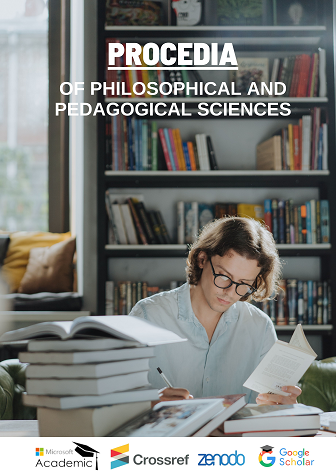Innovative Reforms and Economic Strategies in the Development of Domestic Tourism in Uzbekistan
Keywords:
Domestic Tourism, Tourism Concept, Tourism Market, Infrastructure, Tourism Market Innovation, Visual ModelAbstract
This study investigates the innovative reforms and economic strategies crucial for the development of domestic tourism in Uzbekistan. The primary objective is to enhance the organizational-economic mechanisms underpinning this sector, with particular emphasis on addressing issues related to local governance and information asymmetry. The methodology employed includes analyzing the multi-layered structure of domestic tourism networks, drawing on theories from Milgrom and Roberts, as well as economic activity models from A. Smith and D. Ricardo. This approach allowed for a comparative analysis with other economic sectors, focusing on both macroeconomic and microeconomic factors. The research emphasizes the necessity of comprehensively studying these mechanisms while considering both macroeconomic and microeconomic factors. Results indicate that the organizational-economic mechanism for domestic tourism in Uzbekistan is complex, involving legal, infrastructure, financial, informational, and personnel support. These aspects collectively contribute to stable tourism activities, economic growth, and social improvements. The mechanism’s success is linked to its flexibility in responding to external and internal tourism environment factors. Recommendations include expanding training programs to improve tourism literacy and refining economic mechanisms, such as optimizing tourist expenditures to enhance demand. Ultimately, domestic tourism, by retaining financial resources within Uzbekistan, fosters significant economic benefits and supports broader socio-cultural development.
References
П. Милгром, Дж. Робертс Экономика, организация и менеджмент: В 2-х т. / Пер. с англ. -1999- т. 1 – 472 с., т. 2 – 424 с. — Серия «Библиотека Экономической школы».
A.Smit "An Inquiry into the Nature and Causes of the Wealth of Nations"-Infra-M.1997 perevod, 458.
Arabov, N. (2024). Addressing the economic impacts of climate change in Uzbekistan: Challenges and strategies. E3S Web of Conferences, 542. https://doi.org/10.1051/e3sconf/202454204006
Cao, X. (2024). Study on the Strategy of Red Literature and Tourism Brand Communication Helping Study Tourism Economic Development in Liaoning Province under the Background of Internet. Applied Mathematics and Nonlinear Sciences, 9(1). https://doi.org/10.2478/amns-2024-0639
Chiwawa, N. (2023). Sustainable Tourism for Local and Regional Development in South Africa: Unlocking Economic Potential Through Responsible Tourism Strategies. African Journal of Hospitality, Tourism and Leisure, 12(3), 1163–1175. https://doi.org/10.46222/ajhtl.19770720.423
D.Ricardo.The Principles of Political Economy and Taxation.2004.
Нaсридинoвнa, Т. O. (2024). Пути формирования методов продажи туристических услуг при развитии туризма в Узбекистане. International journal of scientific researchers (IJSR) INDEXING, 4(1), 139-145.
Luckyardi, S. (2022). MARKETING STRATEGY FOR LOCAL SUPERIOR COMMODITIES AND REGIONAL ECONOMIC CONTRIBUTIONS OF INDONESIA. Journal of Eastern European and Central Asian Research, 9(1). https://doi.org/10.15549/jeecar.v9i1.866
Molina, T. M. (2023). Strategies in Medical and Wellness Tourism for Economic Development in Ecuador and Cuba Post COVID. Smart Innovation, Systems and Technologies, 345, 69–79. https://doi.org/10.1007/978-981-99-0337-5_6
Nasriddinovna, T. O. (2024). Prospects for the growth of tourism in Uzbekistan and the use of organizational and economic methods in the management of tourist complexes. International journal of artificial intelligence, 4(07), 98-103.
Nasridinovna, T. O. (2024). Methods of Assessing the Competitiveness of Entrepreneurial Activity in Tourism Enterprises. Gospodarka i Innowacje., 46, 590-594.
Solijonova, M., & Teshabayeva, O. (2023). The relevance of tourism development in uzbekistan, priorities in the tourism sector. Current approaches and new research in modern sciences, 2(12), 23-30.
Nasridinovna, T. O. (2023). Factors affecting the management of competitiveness in tourism enterprises. Ethiopian International Journal of Multidisciplinary Research, 10(10), 159-163.
Nasridinovna, T. O. (2023). Preparation of Specialists of the Hotel Complex Analysis of the Quality of Services.
Nasridinovna, T. O. (2023). Methodological Foundations for Assessing Competitiveness. Miasto Przyszłości, 36, 437-440.
Salimov, B. (2023). Strategies for Integrating Digitalization in Leveraging Regional Economic and Scientific Expertise for the Innovative Growth of Small and Medium Enterprises. ACM International Conference Proceeding Series, 483–490. https://doi.org/10.1145/3644713.3644784
Tsviliy, S. M. (2024). Strategy for the Development of the Investment Potential of the Tourism Industry of Ukraine in the International Economic System. Theoretical and Practical Research in the Economic Fields, 15(3), 601–619. https://doi.org/10.14505/tpref.v15.3(31).08
Teshabayeva, O. (2023). The need to form the activities of tourist complexes in order to increase the competitiveness of the country's tourism industry. Theoretical aspects in the formation of pedagogical sciences, 2(15), 50-60.
Тешабаева, О. (2023). Туризм соҳасидаги тадбиркорлик корхоналари рақобатбардошлигини оширишнинг назарий ва услубий асослари. Economics and Innovative Technologies, 11(3), 207-214.
Xojiakbarova, G., & Teshabayeva, O. (2023). Turizm industriyasida xalqaro mehmonxonalar tizimining rivojlanish tendensiyalari. Science and innovation in the education system, 2(13), 30-35.
Downloads
Published
How to Cite
Issue
Section
License

This work is licensed under a Creative Commons Attribution 4.0 International License.
Copyright: © 2024 by the authors. This work is licensed under a Creative Commons Attribution- 4.0 International License (CC - BY 4.0).




